03:14
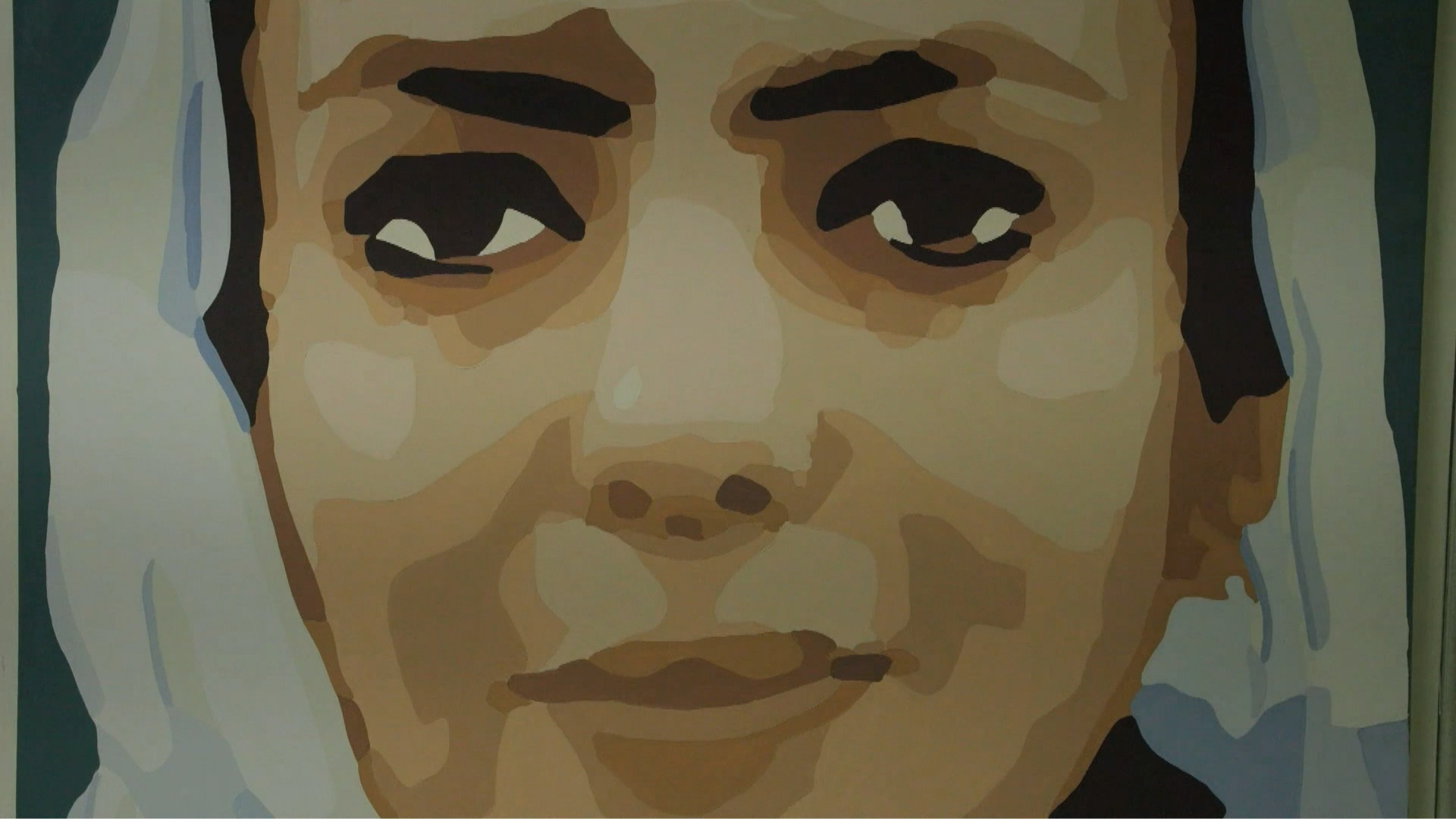
Editor's note: Threats and attacks against Afghan journalists have increased to record numbers since talks began between Kabul and the Taliban, heightening concerns about preserving freedom of expression and the media in any peace settlement. Jack Barton spent the day with one of Afghanistan's most high-profile reporters who faces the double threat from the Taliban of being a journalist and a woman.
Anisa Shaheed takes a different route to work each day.
When she arrives, there is a series of iron, concrete and sand blast-walls to navigate along with multiple security checkpoints, the last of which has bulletproof vests and helmets stacked up in case she and her co-workers come under attack from the Taliban.
Along with frontline soldiers and roadblock guards, Anisa now has one of the most dangerous jobs in Afghanistan - journalist.
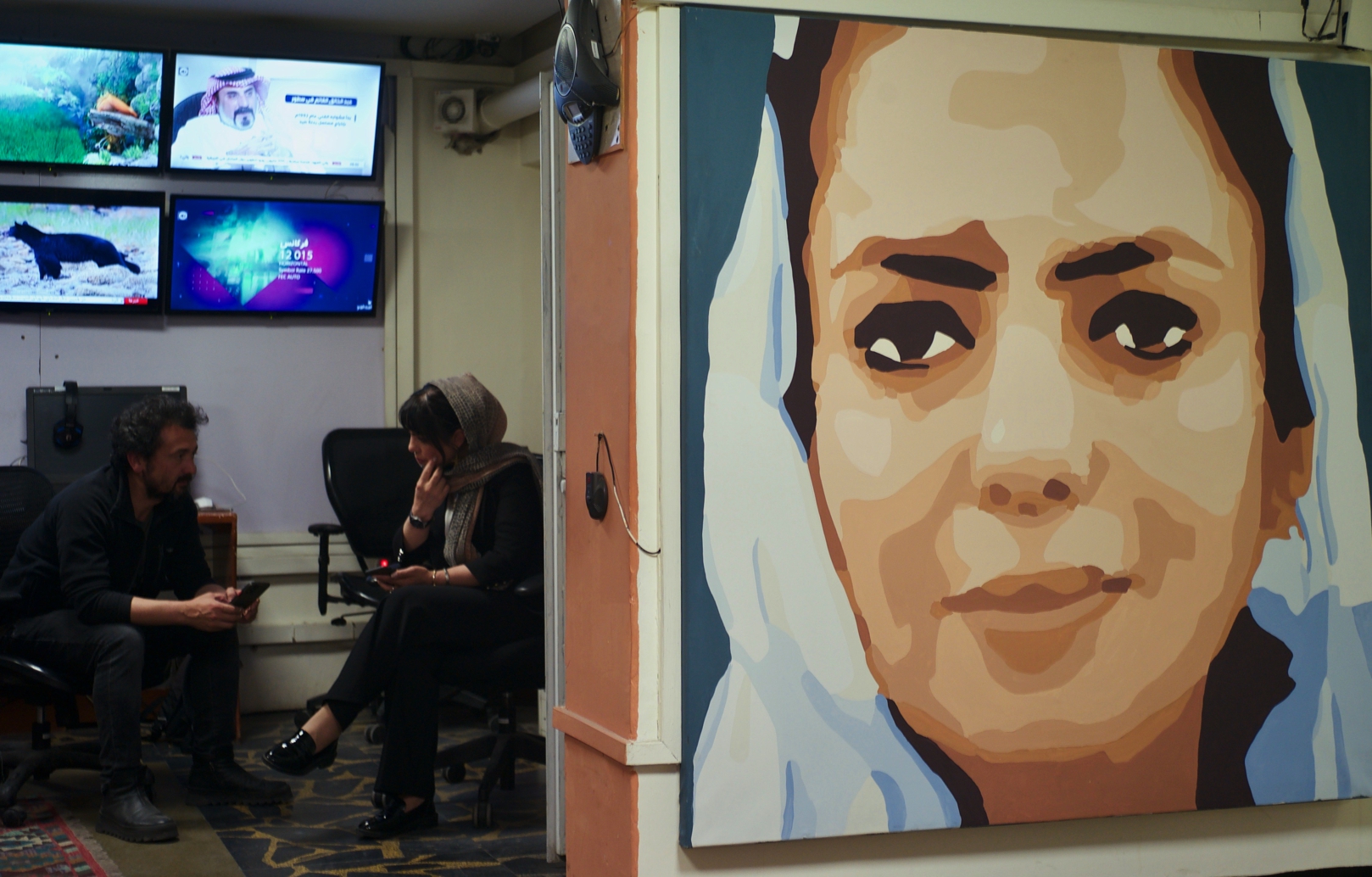
Anisa Shadeed at work beside her portrait in Tolo News. /CGTN
Anisa Shadeed at work beside her portrait in Tolo News. /CGTN
"As a result of violence or target killings, we've lost 138 journalists over the past years. Out of that, 12 were my colleagues," says Anisa, sitting at her desk beside a thick iron door that can be bolted shut in an emergency to slow an attack. She adds, "we ate, talked and worked together in the same place."
Journalists were once treated as neutral observers in Afghanistan.
Since the U.S. struck a deal with the Taliban and announced a full withdrawal of forces by September, targeting killings of reporters has become common.
"In the past six months there's been an unprecedented increase in the level of threats against media outlets, journalists and media workers," says Anisa.
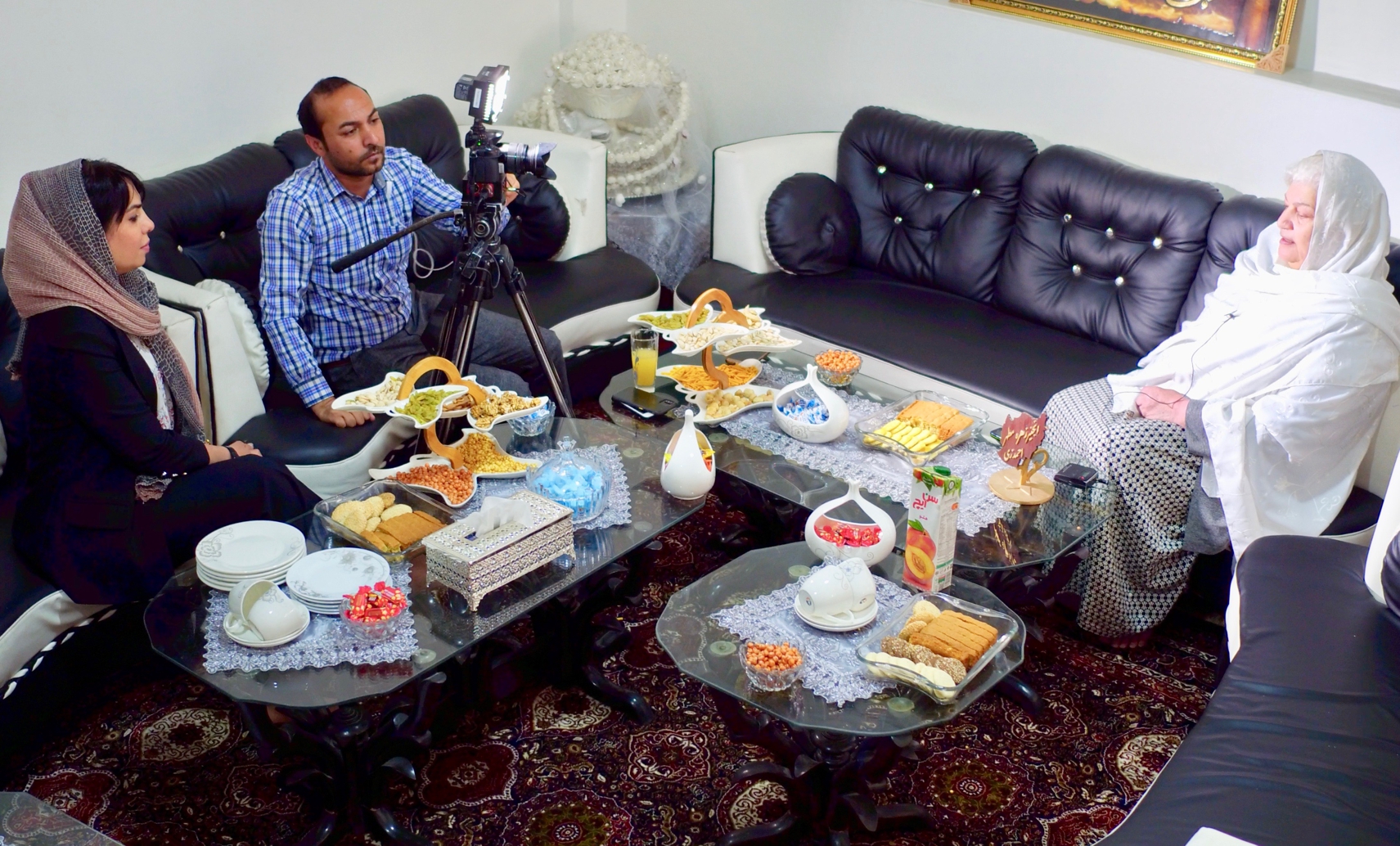
Anisa Shaheed (L) and her cameraman interviewing Zohra Motahhar Ahmadzai, Deputy Chairman of the High National Reconciliation Council. /CGTN
Anisa Shaheed (L) and her cameraman interviewing Zohra Motahhar Ahmadzai, Deputy Chairman of the High National Reconciliation Council. /CGTN
She assumes the Taliban is behind most of the attacks but admits no one really knows.
"When a journalist is killed, we don't know who's behind the killing because no one takes responsibility, neither Taliban nor Daesh (ISIL)," she says.
"It's like playing with fire when you leave the office. When I leave, well, I say goodbye, no idea if I will return or not, and each moment I expect any incident could definitely happen in front of me. It's became very normal," she says, recounting the time a bomb exploded in front of her car.
The Taliban-claimed attack targeted Afghan Vice-President Amrullah Saleh, who escaped with minor burns. Ten people were killed.
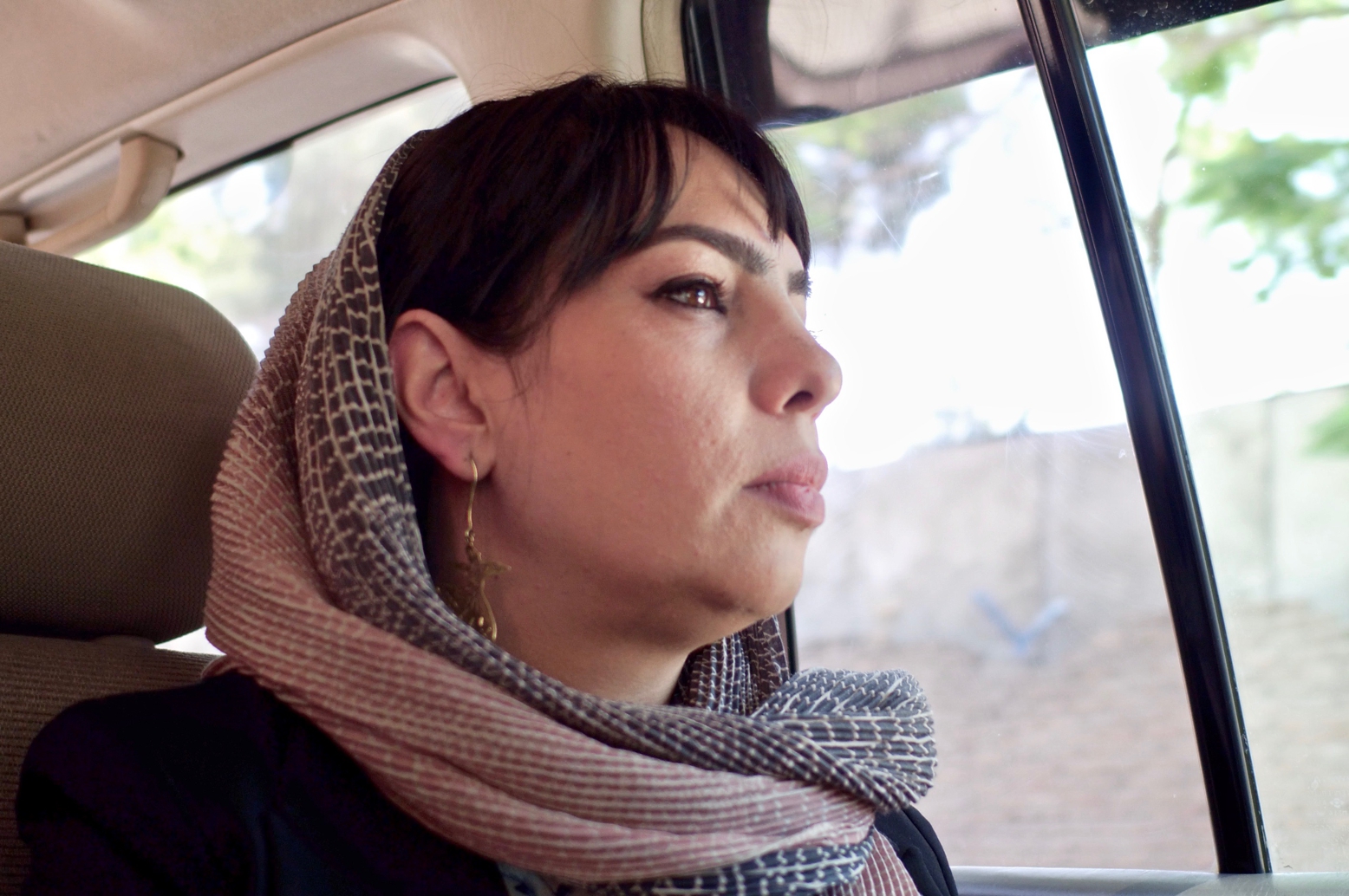
Anisa Shaheed never takes the same route twice to avoid a planned attack targeting her. /CGTN
Anisa Shaheed never takes the same route twice to avoid a planned attack targeting her. /CGTN
"I took out my phone, filmed, interviewed from the site of the incident and then continued to work. Incidents of these sort happened a lot," she says.
Last year international press rights organization Reporters without Borders (RSF) recognized Anisa Shaheed for "courageous" reporting amid the coronavirus outbreak.
RSF listed her as one of 30 international "information heroes" during the pandemic.
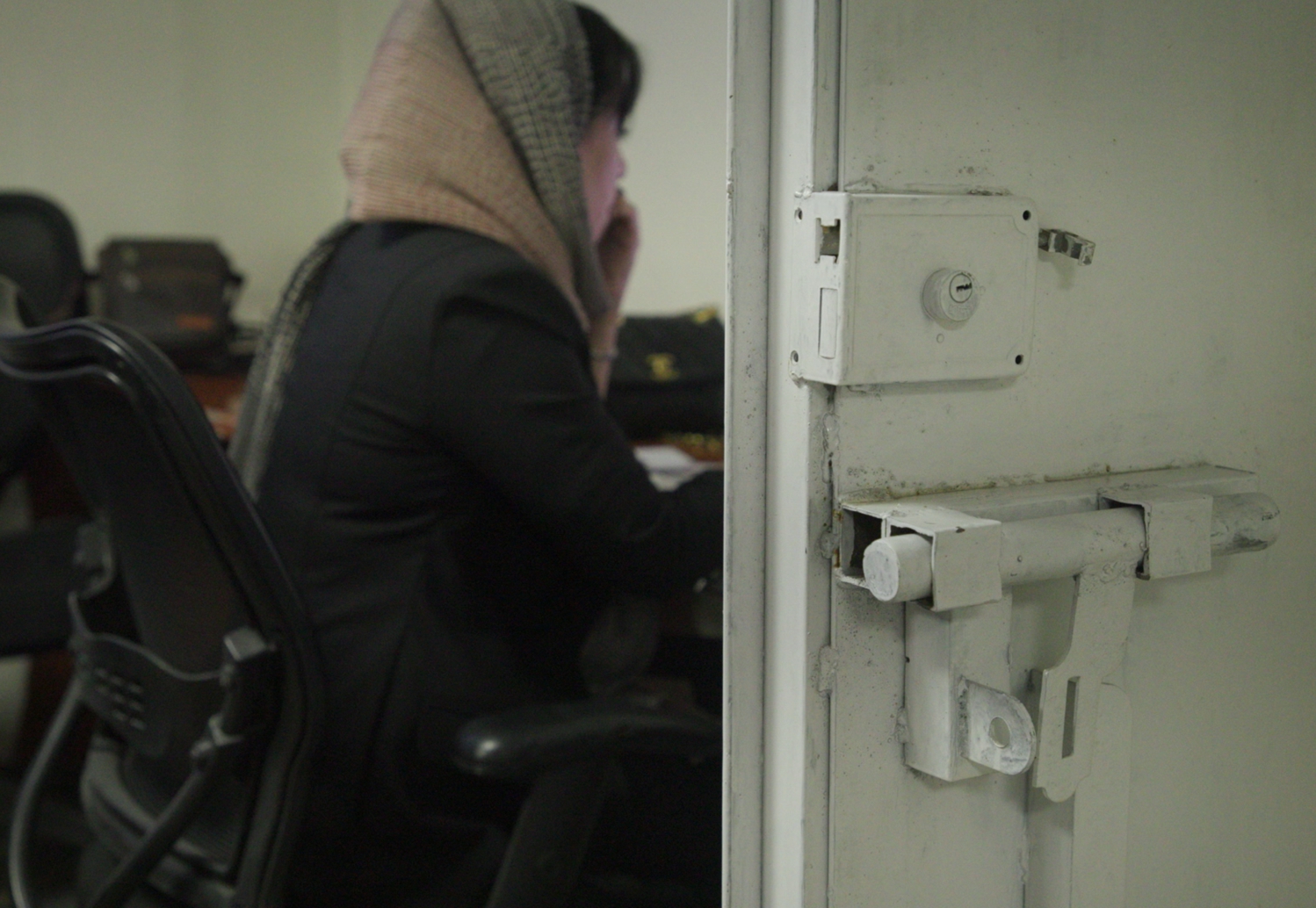
The safety door beside Anisa's desk. /CGTN
The safety door beside Anisa's desk. /CGTN
As important as her COVID-19 coverage is, Anisa says the main concern among journalists remains what a Taliban peace agreement might look like.
"Especially for women and women-journalists, because we have no idea what'll happen with media, freedom of speech and women's presence in the media once there's a deal with the Taliban. If power is shared with them."
The media in Afghanistan is remarkably free and fair and ordinary Afghans have a high degree of trust in local reporters. Despite the daily dangers, it's a trust that reporters like Anisa vow to keep.
"As for now, we need freedom of media more than at any time. Because there're a lot to say and many untold stories that the world should know about," says Anisa.

